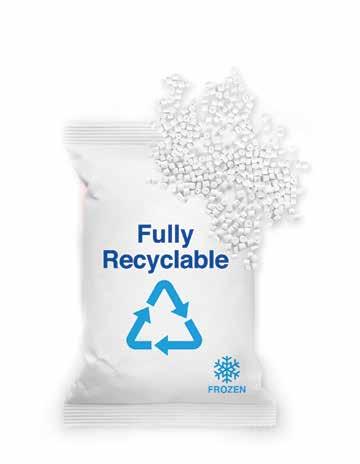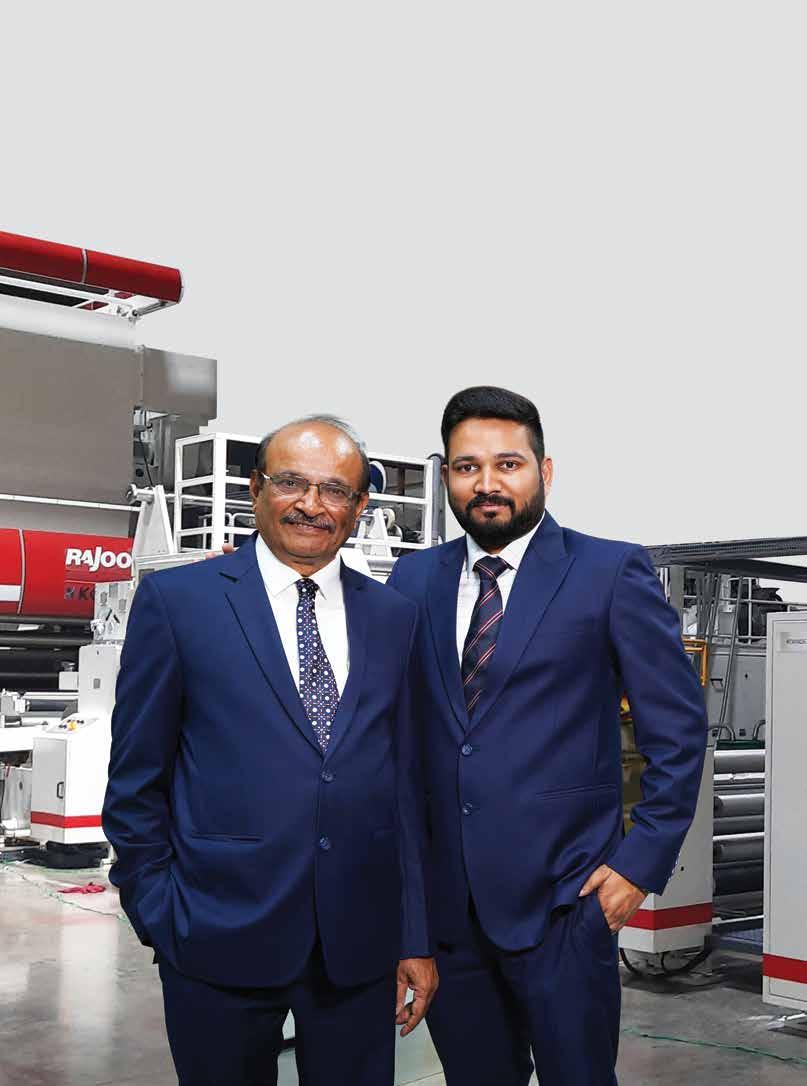
4 minute read
Sustainability Challenges for the Global Plastics Industry
for Improved EPR
Advertisement
Appropriate traceability, with limited human interference, in accounting of used (waste) plastic collected and recovered into same / similar products would help in making the process transparent, secure and sustainable.
Captain Satyendra Vaidya,
Navy Veteran, Independent Advisor, Waste Management, Pune Plastics waste management rules were introduced in 2016. The EPR policy along with its proposed amendments is under issue. Various products have been included under EPR whilst providing multiple models. Traceability of the plastics waste has also been touched upon in the proposed policy. Accounting procedures for the collected / recovered plastic have also been laid down in the proposed policy.
The aim of this edit is to propose a wholistic solution for traceability of all plastic packaging, especially single-use plastic packaging throughout its lifecycle from manufacture to recovery (recycling).
Present System
In the proposed EPR system, manufacturers / brand owners / producers are mandated to collect the end-of-life waste generated. The responsibility may also be met through authorised waste collection agencies or Producer Responsibility Organisation (PRO). Once registered, the PRO and the manufacturer / brand owner / producer would reach an agreement for quantum of waste to be collected for recycling / reuse purpose. The PROs on their part are required to furnish various documents as proof of collection. Other models like product take-back mandate, recycling rate targets with tradeable recycling credits and voluntary product take-back models have also been discussed.
Drawback(s)
The guidelines as given in the proposed rules state: “Producers / importers / brand owners by their own or through PRO are required to ensure that an equivalent amount of plastic is being collected and processed.”
The rules do not mandate a producer / brand owner to collect / process the same type of
RFID would help in accounting for the quantum of plastic packaging produced and released by respective entities.
plastic being produced by them, thereby making waste collection a generic process without much accountability to the respective type of plastic.
As per para 9.13 (of Guideline Document - Uniform Framework for Extended Producers Responsibility - issued by the Ministry of Environment, Forest and Climate Change in June, 2020), a system for traceability of waste (to be set up) puts the onus of reporting and accounting solely on the PROs. Technology can be put to good use to enhance the accountability.
To know more, please subscribe to Polymers Communiqué at subscriptions@polymerscommunique.com
Leave a Mark with
All That You Do!
BOPE Packaging Solutions

for an Improved Sustainability
Recyclability of plastic materials of all kinds as well as the establishment and strengthening of a circular economy are high on today’s agenda. Brückner’s focus is on mono-material films with superior mechanical and optical properties, which will be able to substitute multi-layer films made from different materials. Biaxially oriented polyethylene film (BOPE) offers new possibilities for sustainable packaging by full recyclability, packaging functionality and goods protection.
Brückner offers a BOPP / BOPE hybrid-line concept for a full output and high film quality for both products, opening new business segments for film producers. As the demand for innovative BOPE films is only now starting to develop, film producers will be able to react swiftly and flexibly to market trends.
Because new mono-material structures have to fulfill the highest demands, Brückner has developed a new inline coater for all BOPP and BOPE lines: it makes the production of extremely thin functional layers within the nano range possible. Due to the extreme thinness, the layers don’t disrupt the sorting and recycling, but cater, for example, for an improved adherence during metallising and provide excellent barriers in combination with aluminium oxide coating.
To drive development forward, Brückner teams up along the value chain with raw material suppliers, masterbatch specialists, film producers and converters. Goals are, among others, to accelerate the development and commercialisation of a new resin technology for the BOPE market, to optimise polymers, masterbatches and process parameters and to develop BOPE-LLD and BOPE-HD films as well as barrier solutions for BOPE. Brückner offers a BOPP / BOPE hybrid-line concept for a full output and high film quality for both products, opening new business segments for film producers.


STRETCHING
THE LIMITS BOPE packaging for our future sustainability
Multi-layer mono-structures Superior film properties Dedicated line concept Perfect match with the circular economy
www.brueckner.com
BusinessToons BusinessToons

More than just ordinary, BusinessToons take content to another level in POLYMERS Communiqué. Reading this, some may laugh, some may smile, some may read it and just put the magazine on the side. In either case, it has achieved its intent to help you unwind and reset your mind...make it fresh, as green as it can get; essential isn’t it...as possibilities with polymers are endless...circular nevertheless!

















